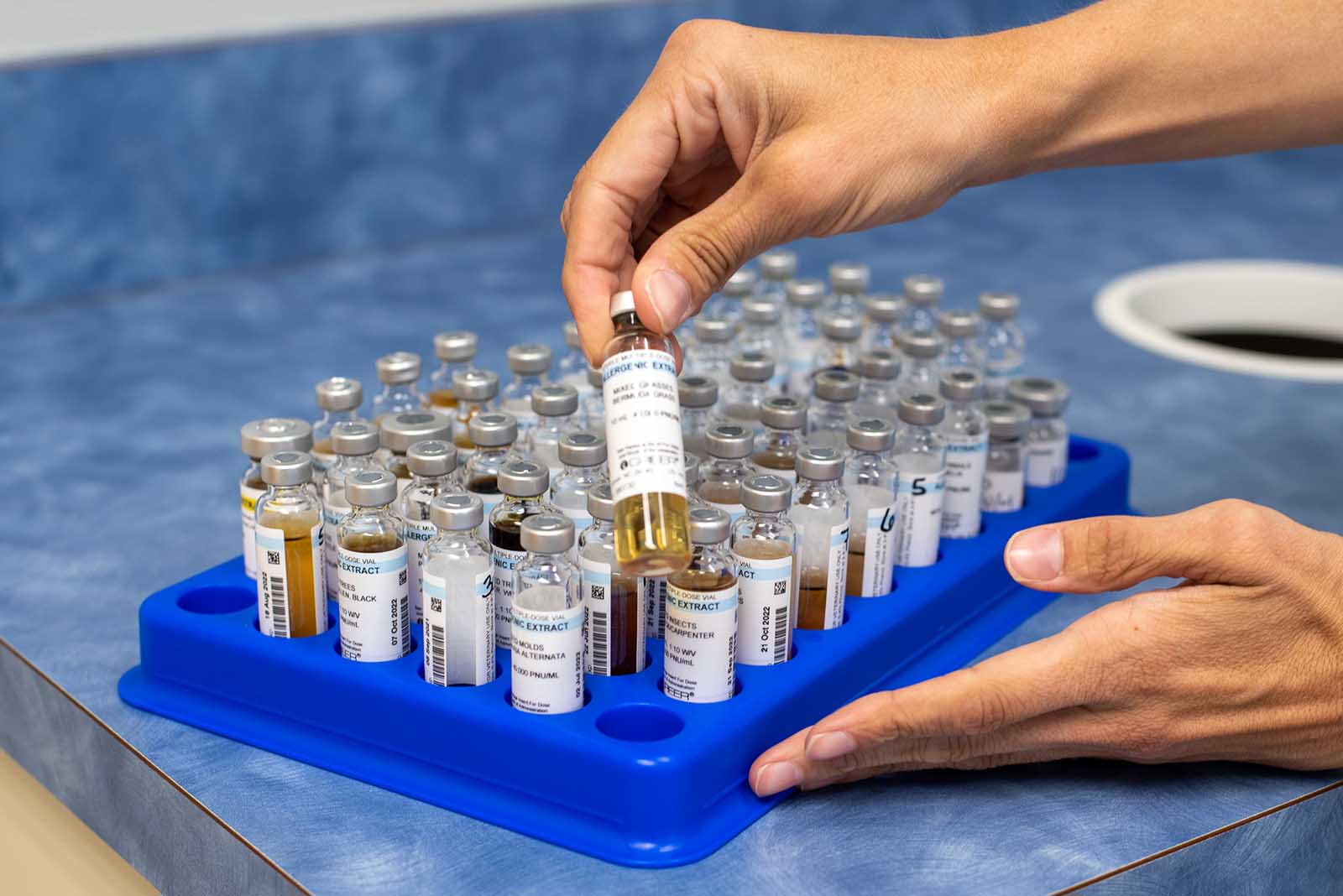Environmental Pet Allergies: Diagnosis & Treatment
Veterinary dermatologist Dr. Jennifer Bentley went live on Facebook to go deeper into the diagnosis and treatment of environmental pet allergies. We opened the discussion a while back with an introduction to common risk factors, symptoms and treatment of chronic allergies in dogs and cats. In this most recent episode, Dr. Bentley explains how pets are tested for allergies, and how an allergy vaccine can help.
Recap: Medications for Symptom Relief of Environmental Pet Allergies
Traditional medications for pet allergies include steroids such as prednisone. Other treatments for pet allergies include Apoquel, a non-steroidal anti-itch treatment, Cytopoint, and injectable anti-itch treatment that may work from four to twelve weeks, and cyclosporin, an immunomodulator.
The real issue is that it’s not ideal to use any medication for an extended period. However, pet allergies are chronic and progressive, meaning, any of the above mentioned treatments is likely to be long term. Also, while the effects of long-term use of steroidal drugs like prednisone are well documented, less comprehensive data exist for newer medications like Apoquel.
The Allergy Vaccine
The bottom line is that drug treatments for pet allergies are only band-aids. They can minimize symptoms, but do not stop the disease from progressing. The only way to stop the progression of the disease and decrease the use of other medications is with the allergy vaccine. It works by changing your pet’s immune response to allergens. VRC formulates allergy vaccines in-house, from allergen extracts. Yes, that’s right: the vaccine introduces the exact allergens your pet is allergic to, and changes your pet’s immunological reaction to them. Originally developed to combat hay-fever in humans, it’s one of the oldest vaccines in use.
There are two ways to administer the vaccine. The oral variety comes in the form of a liquid. A pump bottle lets pet parents apply it directly to the gums, by which it is quickly absorbed. Alternatively, an injectable method may be administered every three weeks. The shot can be given at home.
Better Control Over Chronic Environmental Pet Allergies
Some pets may experience increased symptoms in the first phase of the vaccine, in which case the veterinarians at VRC can medicate your pet to mitigate the discomfort. It’s important to understand that with the allergy vaccine, you’ll wait three to nine months for positive results. That said, while it is not a cure, the vaccine provides better control over this chronic and progressive disease. For some pets, the vaccine enables them to stop other allergy treatments altogether. Most often, however, the allergy vaccine reduces the need for other medications by up to fifty percent. This may not sound like a lot, but fifty percent less medication can makes an enormous difference in quality of life for your dog or cat.
What’s the First Step?
Allergy-specific immunotherapy for pets starts with testing. The Gold Standard for testing for allergens is an intradermal test, or skin test. Your dog or cat is sedated, followed by a series of more than a dozen small pokes to introduce and identify the problem allergens. While highly accurate, the test is moderately expensive and requires a wash-out period beforehand to clean all medications out of the system.
The alternative is a serum, or blood test. In both cases, the results are used to formulate the appropriate allergy vaccine for your dog or cat. Commonly, your pet will react to multiple allergens—the culprit is seldom a single allergen. This is why environmental controls alone, without treatment, are often ineffective.
As part a treatment plan for environmental pet allergies, the allergy vaccine can be a game-changer for your pet.
What Else?
Home remedies can help your dog or cat feel relief from seasonal environmental pet allergies, but make sure you’ve got all the information. For example, fatty acids work by incorporating into cell membranes, but not all fatty acids are equal. Flaxseed oil will not function for your pet in the same way fish oil can. Talk to your vet, too, about proper dosage.
Topical treatments such as shampoos can help your pet feel relief, and also help restore the epidermal barrier. Veterinary offices will often carry better products than the local pet supply store, and effective over-the-counter products are available online. Just make sure to ask your vet which products they recommend.
For more information about pet allergies, food toxicity, and how to deal with cheatgrass, read more on the VRCCO blog.



